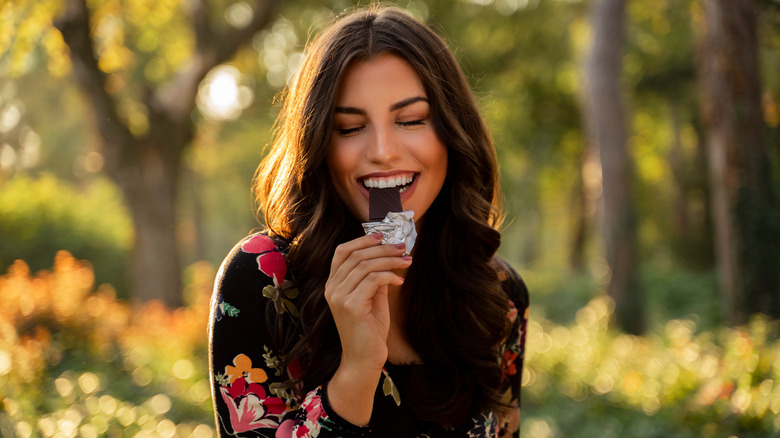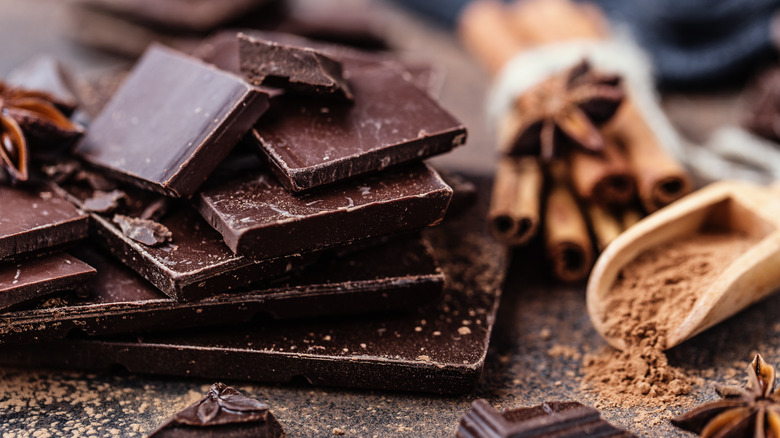Can Dark Chocolate Help With Anxiety?
It's not uncommon to want to reach for chocolate during moments of anxiety and stress. Not only is it sweet, creamy, and delicious, but science suggests there are powerful bioactive components in cocoa — namely its rich polyphenol content — that provide a sense of calm and contentedness. A 2013 study published in the Journal of Psychopharmacology found that participants who consumed a dark chocolate drink mix containing 500 milligrams of cocoa polyphenols showed significantly increased rates of calmness, compared to the placebo group.
Another study published in the International Journal of Health Sciences in 2014 looked at cocoa polyphenol's role in stress reduction. The researchers found that medical students who consumed a total of 40 grams of dark and milk chocolate daily had significantly reduced levels of perceived stress. Interestingly, the study also revealed that chocolate consumption had greater anti-stress benefits for women than for men. Could chocolate really be the key to relieving anxiety?
Vitamin D in dark chocolate
Higher levels of anxiety and mood changes are found in individuals with vitamin D deficiencies, and researchers suggest that greater intakes of vitamin D can help combat anxiety (via Brain and Behavior). The good news for chocolate lovers is that cocoa may help boost vitamin D levels, effectively lowering rates of these mental health ailments. A 2018 study published in the journal Food Chemistry found that cocoa and foods containing cocoa are rich sources of vitamin D. The results indicated that cocoa powder and cocoa butter contained the highest amounts of vitamin D.
Additionally, dark chocolate contained higher amounts of vitamin D than white chocolate. In fact, dark chocolate has roughly 3.95 micrograms (per 100 micrograms) of vitamin D. To compare this finding against other foods high in vitamin D, egg yolks contain 5.5 micrograms (per 100 micrograms) of vitamin D, and tuna has 4.5 micrograms (per 100 micrograms). This can be particularly beneficial for vegans and vegetarians, who may find it difficult to get sufficient dietary sources of vitamin D. Chocolate nut spreads and instant drinks yielded low levels of vitamin D, indicating not all chocolate products were good sources.


